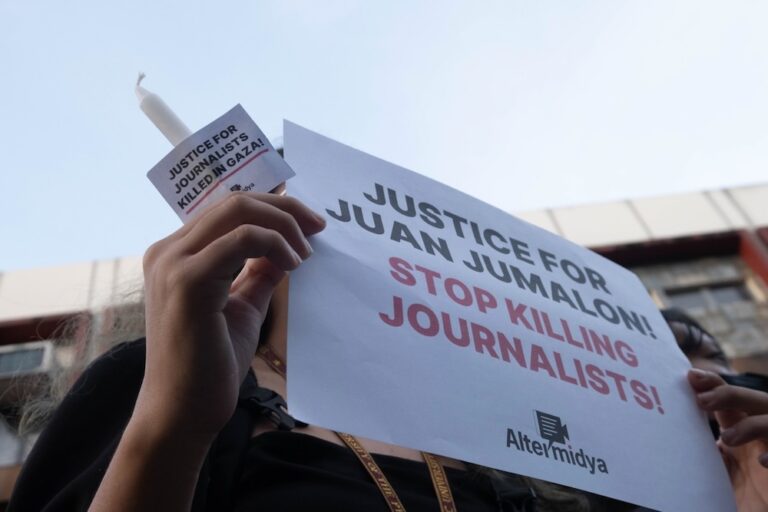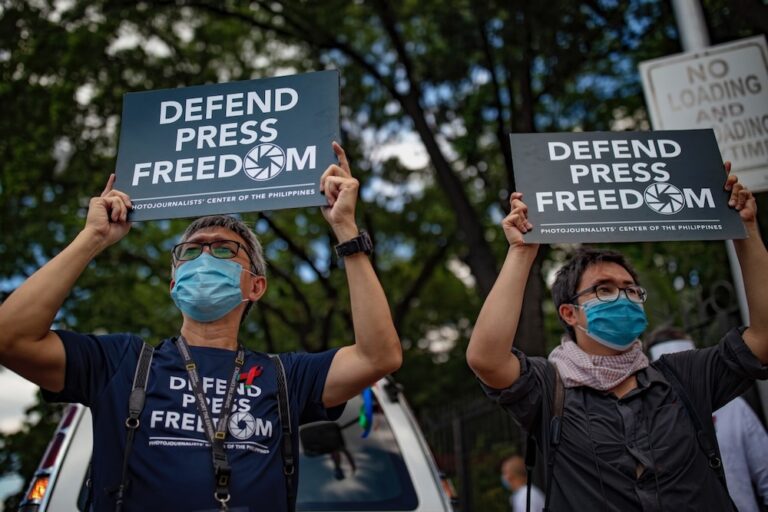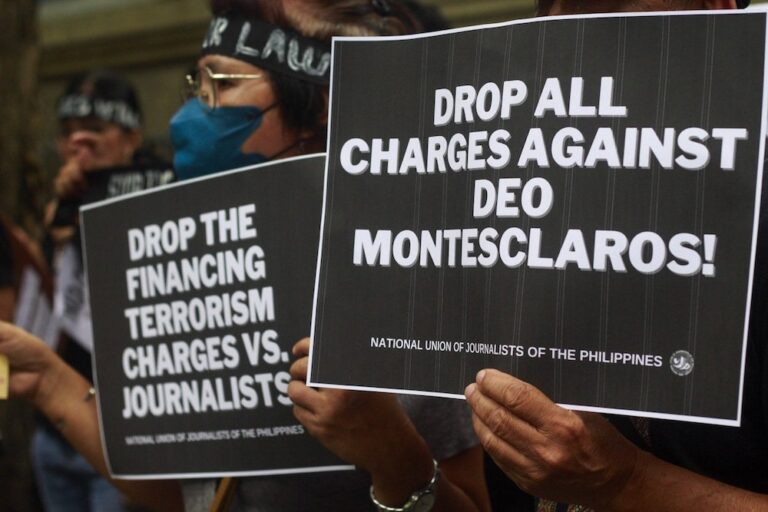(CMFR/IFEX) – The trial of the suspect in the 2001 killing of a radio journalist began 9 May 2008 in Cebu City, Cebu, with the journalist’s widow stating under direct examination by the prosecution that her husband had received death threats in relation to his job as a journalist before he was killed. Cebu is […]
(CMFR/IFEX) – The trial of the suspect in the 2001 killing of a radio journalist began 9 May 2008 in Cebu City, Cebu, with the journalist’s widow stating under direct examination by the prosecution that her husband had received death threats in relation to his job as a journalist before he was killed. Cebu is a province approximately 562 km south of Manila.
“He told me prior to his death that he was nervous because of the death threats he had received (in relation to his media work),” said Emely Ureta, wife of Rolando Ureta, who was slain on 3 January 2001 in Kalibo, Aklan. The trial of suspect Amador Raz is ongoing in the courtroom of Cebu Regional Trial Court Judge Sylvia Paderanga. Senior State Prosecutor Peter Medalle conducted the direct examination, during which Emely Ureta stated that her husband was an outspoken critic of lawless violence in their town. Raz was present during the hearing. Co-accused Jessie Ticar died in a provincial hospital in Aklan on 2 May 2008. The prosecution has already moved for the removal of Ticar from the case.
The case was transferred, along with the case of slain radio journalist Herson Hinolan, who was killed on 15 November 2004 also in Aklan, to Cebu by the Supreme Court upon the petition of the Freedom Fund for Filipino Journalists (FFFJ), of which the CMFR is the secretariat, and the National Union of Journalists of the Philippines (NUJP).
Both the FFFJ and the NUJP asked for the transfer of the cases from Cebu, citing the influence of the accused in Aklan. The Supreme Court granted the petition, filed on 5 February 2008, on 18 March 2008.
During the direct examination, Emely Ureta’s voice trembled and tears rolled down her cheeks as Medalle asked her if her husband’s death still affects her, seven years on.
“It hurts. It hurts me so much remembering him,” the journalist’s widow said.
Two celebrated cases of media killings have resulted in convictions after trials in Cebu. One is the 13 May 2002 killing of print, radio and television journalist Edgar Damalerio, which yielded a life sentence for gunman and former police officer Guillermo Wapile on 29 November 2005. The other is the 24 March 2005 killing of print and radio journalist Marlene Esperat, in which accused Estanislao Bismanos, Gerry Cabayag and Randy Grecia – the gunman, lookout, and co-conspirator – were all sentenced to life imprisonment on 6 October 2006.
The prosecution team believes that the case’s age will have no effect in the outcome of the case.
“Witnesses don’t forget what they have seen and, if given the chance, they will reveal everything in court,” said Senior State Prosecutor Theodore Villanueva.
There have been 71 journalists or media practitioners killed in the line of duty in the Philippines since 1986. Of the 33 cases since 2001, there have been only two convictions.
Updates the Ureta case: http://ifex.org/en/content/view/full/91891
For further information on the Hinolan case, see: http://ifex.org/en/content/view/full/91891
For further information on the Damalerio case, see: http://ifex.org/en/content/view/full/77307
For further information on the Esperat case, see: http://ifex.org/en/content/view/full/91996


